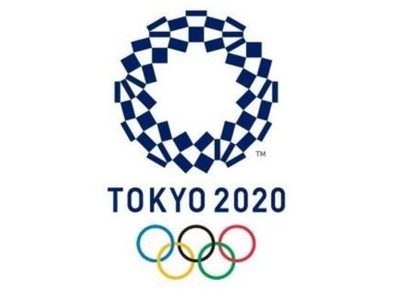Will the World Anti-Doping Agency (WADA) Sanction Russia from the Olympics?

The World Anti-Doping Agency (WADA) might declare Russia’s national counterpart “non-compliant” with the international body’s regulations early next month in a shameful move that could potentially make the country unable to compete in next year’s Tokyo Olympics, thus continuing the Hybrid War on Russia by delivering another blow to its people’s dignity.
The author wrote last month about how “WADA’s Being Weaponized To Destroy Russians’ Dignity” in an analysis that focused on one of the intangible elements of the ongoing Hybrid War on Russia. The World Anti-Doping Agency (WADA) alleges that the country’s national counterpart was engaged in a years-long conspiracy to cover up its athletes’ illegal doping, and the former’s Compliance Review Committee’s (CRC) investigation just concluded that the latter hadn’t adequately explained so-called “inconsistencies”. WADA’s Executive Committee will now meet on 9 December to decide whether to declare the Russian Anti-Doping Agency (RUSADA) “non-compliant”, which could see Russian athletes banned from next year’s Tokyo Olympics, though they might still be able to compete under the title of the “Olympic Athlete From Russia” designation like they did during the 2018 Winter Olympic Games.
Although it may not seem like it to those who haven’t been closely following this saga, the issue isn’t apolitical at all but is actually politically driven given the double standards at play that were explained in the author’s prior analysis on this topic. Even the prospective consequences themselves are political since they involve the collective punishment of all of Russia’s athletes and the nation that they represent. It’s no secret that the US and its allies are engaged in a heated rivalry with Russia at the moment, one that extends beyond the geopolitical realm and into every other one such as sports. Russia has a celebrated history of doing extremely well at international sporting events, so there’s certainly a self-interested motive from its competitors to see its representatives banned from competitions in order to improve their own prospects for success. Furthermore, because of how important these events are, Russia’s politicized removal might harm the national psyche.
Hybrid Wars aren’t just about geopolitical and economic gains, but also socio-cultural ones too, hence why sports are also an arena of rivalry in this sense. Rules are bent, broken, and selectively applied in pursuit of desired outcomes, which in this case relates to the enormous amount of time, money, and effort invested in removing Russia from international sporting events. It would be unfortunate if there was some degree of credibility to the claims that select samples might have been tampered with over the years, but even in that case, it’s morally wrong to punish every athlete and the people that they represent because of it. Blanket bans, no matter the reason or the sphere that they relate to, are by default designed to send a political message. This can either be to deter other rule-breakers and/or humiliate those who are accused of violating those selfsame rules. In this instance, the motivation to potentially impose that extreme punishment is certainly the latter.
Other countries have been suspected of breaking WADA’s rules, but the international body has either looked the other way or declined to invest anything close to the amount of time, money, and effort in investigating those claims. Russia is being singled out not just because of the severity of what’s being alleged, but due to the fact that so many other countries (chiefly Russia’s Western geopolitical and sports rivals) have a stake in the outcome of removing their top competitor from the Olympic Games and other international sporting events. From their perspective, the “return on investment” for investigating similar allegations of suspected rule-breaking by less-impressive teams doesn’t “pay off as handsomely” because their removal wouldn’t alter the dynamics of these competitions all that much. Russia’s removal, however, would literally be a game-changer in every single way, hence why that outcome is being so vigorously pursued.
If WADA was sincere in deterring other potential rule-breakers, it would only seek to punish the people directly involved in the alleged conspiracy, and only then if it was proven beyond any doubt that they were guilty, which has yet to be the case. Removing an entire team amounts to humiliating an entire nation and its many athletes who were never suspected of participating in the suspected cover-up. Doping is definitely a problem in the sports world, but WADA shouldn’t practice double standards. It needs to scrutinize all teams equally, not mostly focus on the Russian one for the self-interested reasons that were explained. There are still two weeks to go before the Executive Committee makes its final decision on the matter, but it looks like their mind has already been made up. It’ll be nothing short of a miracle if Russia isn’t banned from next year’s Tokyo Olympics, but given that the West isn’t known for playing fairly, it’ll probably go forward with WADA’s “recommendation”.
*
Note to readers: please click the share buttons above or below. Forward this article to your email lists. Crosspost on your blog site, internet forums. etc.
This article was originally published on OneWorld.
Andrew Korybko is an American Moscow-based political analyst specializing in the relationship between the US strategy in Afro-Eurasia, China’s One Belt One Road global vision of New Silk Road connectivity, and Hybrid Warfare. He is a frequent contributor to Global Research.
Featured image is from OneWorld

